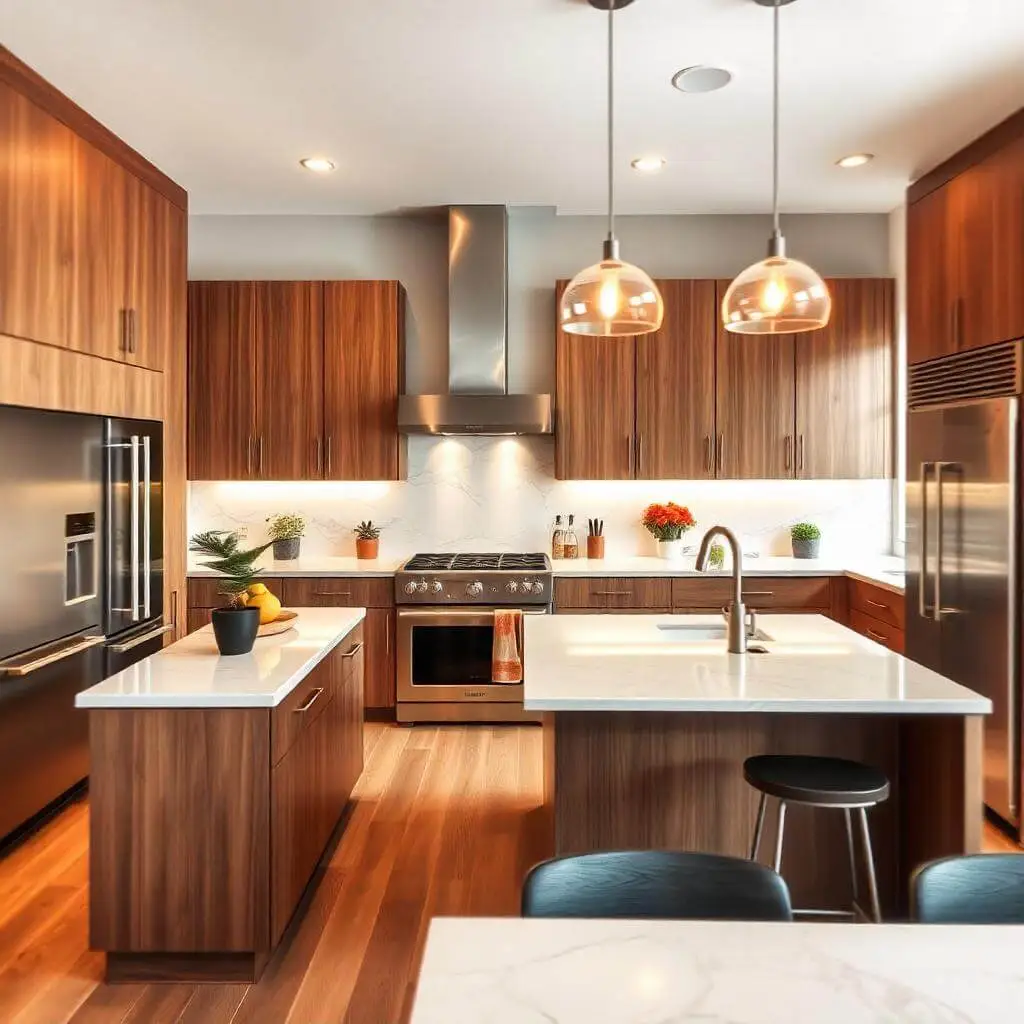
A custom kitchen remodel is one of the most transformative projects you can undertake in your home. The kitchen is the heart of any household—a place for cooking, gathering, and making memories. Customizing your kitchen allows you to tailor the space to your needs, style, and lifestyle, turning it into a functional and beautiful centerpiece. Here’s a comprehensive guide to planning and executing a custom kitchen remodel.
1. Envision Your Dream Kitchen
Before you begin, think about how you want your kitchen to function. Do you need more storage, better lighting, or updated appliances? Consider your cooking habits, family size, and how often you entertain guests. Sketch a rough layout or gather inspiration from magazines, Pinterest, and home improvement shows to define your dream kitchen.
2. Set a Budget
Custom kitchens can vary greatly in cost, depending on the materials, appliances, and finishes you choose. Establish a realistic budget that includes all aspects of the remodel, from cabinetry to lighting fixtures. Experts recommend allocating 10-15% of your home’s value to your kitchen remodel for a balance of quality and return on investment.
3. Choose a Layout That Works for You
The layout is the backbone of any kitchen design. Common layouts include:
- L-Shaped: Ideal for open-concept homes, providing ample workspace.
- U-Shaped: Perfect for larger families or those who love to cook.
- Galley: Compact and efficient, great for small spaces.
- Island-Centered: Adds workspace, seating, and storage.
A custom kitchen remodel allows you to adapt these layouts to your specific needs, ensuring maximum functionality.
4. Invest in Quality Materials
Custom kitchens shine when built with high-quality materials. Opt for solid wood cabinetry, durable countertops like quartz or granite, and flooring that can withstand heavy foot traffic. High-end finishes not only enhance aesthetics but also improve longevity.
5. Tailor Storage Solutions
Storage is critical in any kitchen. Custom cabinetry lets you maximize every inch of space with solutions like pull-out drawers, corner carousels, and built-in organizers. Consider adding a pantry or custom shelving for a seamless look.
6. Select the Right Appliances
Appliances are a focal point of any kitchen. Choose energy-efficient models that meet your cooking needs and fit your design aesthetic. Built-in appliances or custom panels can create a streamlined, cohesive appearance.
7. Personalize the Design
Customization allows you to add unique touches to your kitchen. Incorporate elements like:
- A statement backsplash that reflects your style.
- Under-cabinet lighting for functionality and ambiance.
- A farmhouse sink or custom range hood for added charm.
- Mixed finishes, like pairing wood cabinetry with metal accents, for a modern yet personalized look.
8. Work with Professionals
While DIY projects are rewarding, a custom kitchen remodel often requires the expertise of professionals. Designers, contractors, and electricians can ensure your vision is brought to life safely and efficiently. Choose experts with experience in custom kitchen projects.
9. Plan for the Future
Think long-term when designing your custom kitchen. Consider timeless designs that will age gracefully and add resale value to your home. Incorporate smart technology, such as touchless faucets or smart ovens, for modern convenience.
10. Enjoy Your New Space
Once your custom kitchen remodel is complete, take the time to appreciate and enjoy the results. Host a dinner party, bake with your family, or simply admire how the space perfectly fits your lifestyle.
Conclusion
A custom kitchen remodel is an investment in your home’s functionality, aesthetics, and value. With thoughtful planning and quality craftsmanship, you can create a space that combines beauty and practicality, becoming a true reflection of your unique style.
Understanding Kitchen Remodeling Costs: A Comprehensive Guide
2 thoughts on “The Ultimate Guide to a Custom Kitchen Remodel”